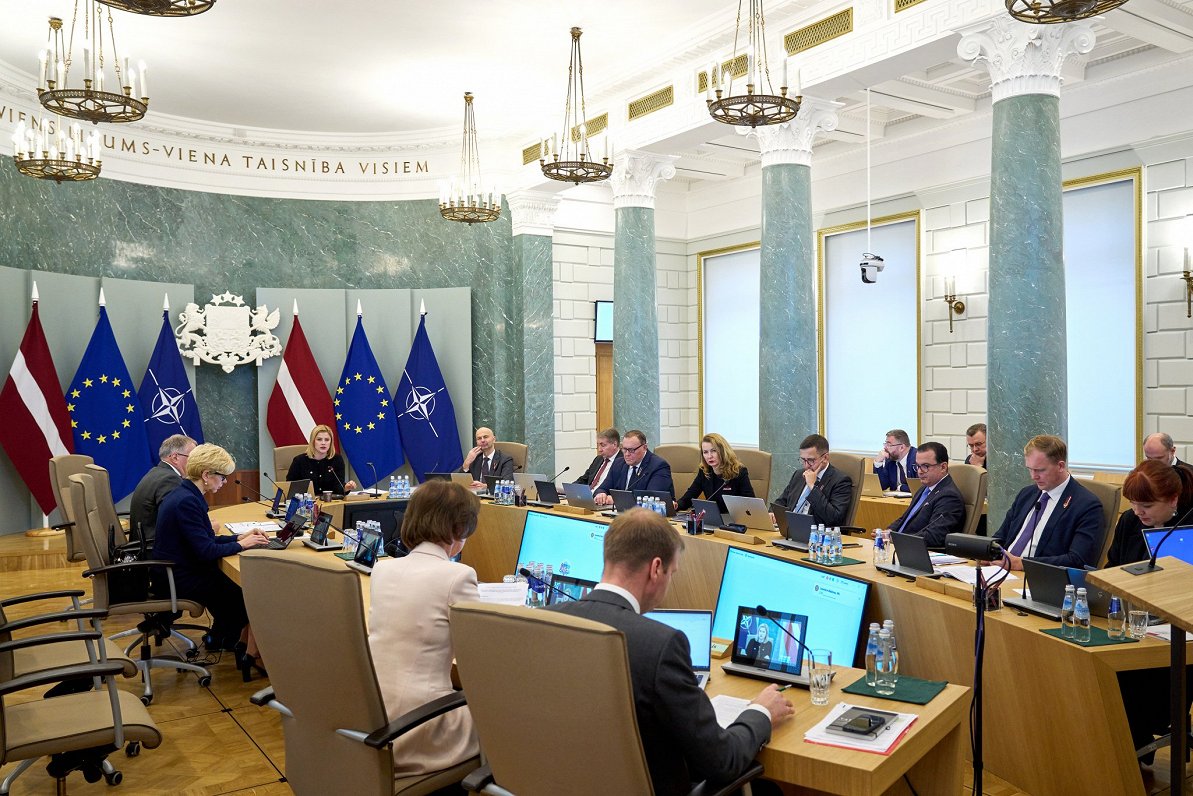The main tasks of the Crisis Management Center would be the identification and forecasting of threats, the provision of information among state and local government institutions, as well as the coordination of civil-military cooperation in cases of civil crisis.
Pariamentary bills for the establishment of the center are planned to be developed during this year, while decisions on funding for the center will be included in next year's budget preparation process. At least 12 employees would work in the center.
At present, in the event of a major state-level threat, civil-military cooperation and the coordination of state administration institutions is ensured by the Crisis Management Council, which includes many government ministers, but not all of them.
IeM has identified several problems in this management model, so it has encouraged the creation of a permanent institution for civil crisis management. However, under the plan the existing Crisis Management Council would not be disbanded. Instead the Crisis Management Center would fulfill the functions of the Secretariat of the Crisis Management Council. The Crisis Management Council would make decisions at the strategic level and the Crisis Management Center at the operational level.
The new institution would be included within the State Chancellery [the central government apparatus], but functionally subordinated to the Prime Minister.
Significant changes are needed in the crisis management system, the IeM says, including a review of the composition and work of the Crisis Management Council. In fact, the Ministry wants all government ministers to be included in the Council.
Currently, the Crisis Management Council does not include the Minister for Education and Science, the Minister for Culture, the Minister for Welfare, the Minister for Agriculture, or the Minister for Climate and Energy. So, if the plan proceeeds, the reformed Council would in fact include all members of the cabinet and the chair of the Council would be the Prime Minister who, obviously, also chairs cabinet meetings.
At the government meeting Tuesday, Interior Minister Rihards Kozlovskis (New Unity) explained that the Crisis Management Center would be a government-level mechanism to run things more efficiently. His ministry emphasized that the Crisis Management Center would not take over the functions of the crisis management bodies of the already-established ministries, but would take over the coordination of the activities of these institutions in the event of a cross-sectoral crisis.
Each new government will be expected to undergo a one-day crisis management training course as well as annual theoretical training. At the ministerial level, seminars would be provided to employees. Taking into account that state capital companies and private businesses, non-governmental organizations and other organizations are also involved in overcoming civil crises, it would be necessary to include their representatives in the training cycle, too.
Meanwhile the Crisis Management Center would have the task of coordinating the internal and external communication of the Crisis Management Council and the Crisis Management Center, developing crisis communication algorithms and methodical materials, providing crisis communication training, as well as coordinating inter-institutional internal and external crisis communication during a civil crisis. In the event of a civil crisis, the center would prepare draft decisions to overcome the crisis or disaster, as well as coordinate civil-military cooperation.
In the event of a military crisis, the Crisis Management Center would coordinate the actions of the civil sector and ensure cooperation with the military sector.
At the same time, the center would also ensure cooperation and information exchange with the European Commission and other European Union member states.
The Ministry of the Interior has proposed the creation of at least 12 positions at the Crisis Management Center, of which two positions would be allocated to the head of the Crisis Management Center and a deputy.
The Government has instructed the State Chancellery and the Ministry of the Interior to prepare proposals for the structure, physical arrangement, personnel provision and material and technical provision necessary for the Crisis Management Center by April 30 of this year.
In addition, the State Chancellery, in cooperation with the Ministry of the Interior, must prepare the necessary drafts of legal acts for starting and ensuring the operation of the Crisis Management Center, as well as for the reorganization of the crisis management system, by June 30.





























